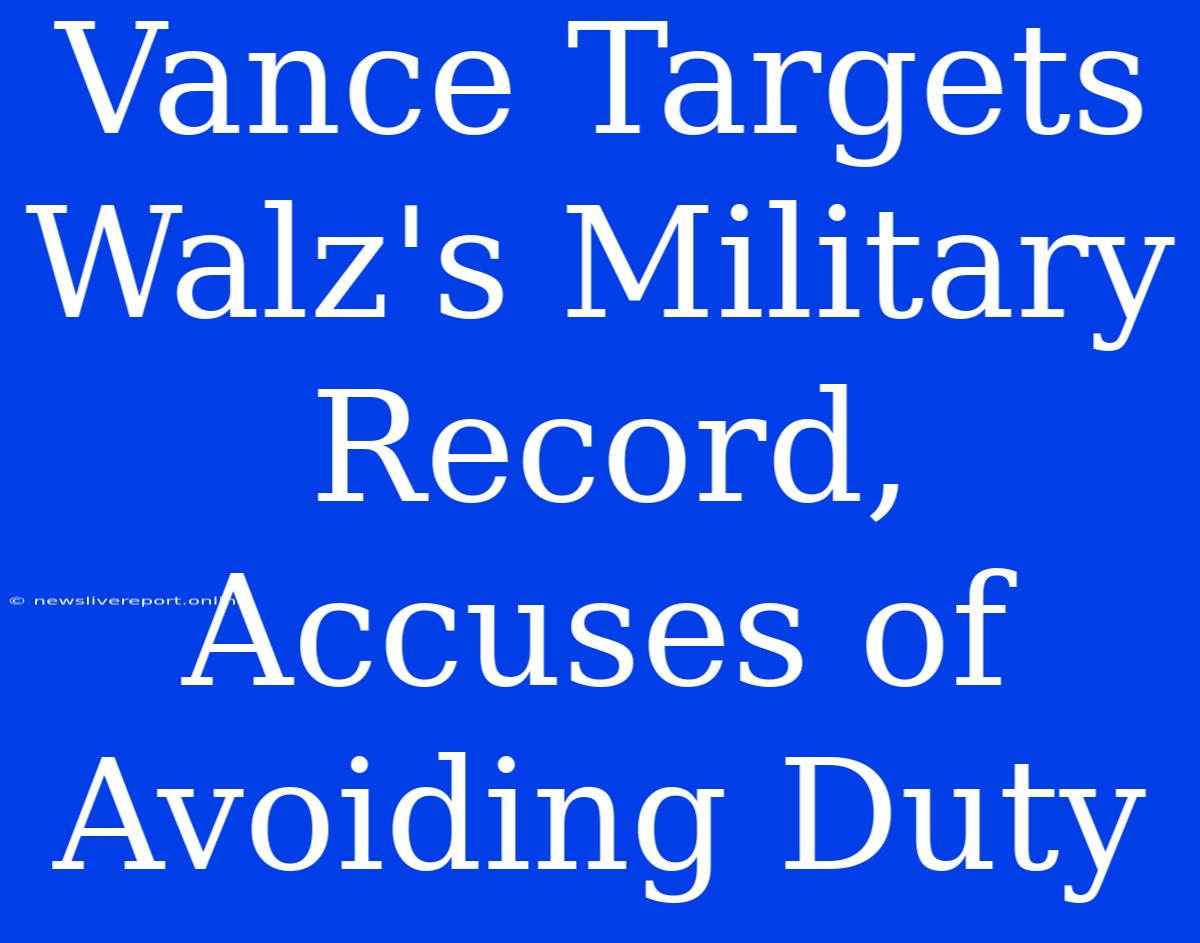Vance Targets Walz's Military Record, Accuses of Avoiding Duty: Is This a Legitimate Attack or Just Political Theater?
The Minnesota gubernatorial race has taken a sharp turn with Republican candidate Scott Jensen launching a new attack against incumbent Democrat Tim Walz. The focus? Walz's military record. Specifically, Jensen is accusing Walz of avoiding his duty by joining the National Guard after the draft ended, a claim that has sparked heated debate about military service and its role in political discourse.
Jensen's Accusations and Walz's Response
Jensen, a physician and former state senator, has repeatedly criticized Walz's decision to join the National Guard after the Vietnam War draft concluded, implying that Walz opted for an easier path. In a recent interview, Jensen stated, "I think it's fair to question somebody who didn't serve during the time of war and then decided to join afterward."
Walz, a decorated veteran who served in the Iraq War, has vehemently defended his service and slammed Jensen's attacks as disingenuous. He pointed out that he enlisted in the National Guard and served his country with honor, highlighting his commitment to public service. Walz emphasized his record of service and his dedication to the well-being of Minnesota's veterans, further dismissing Jensen's claims as a distraction from real issues facing the state.
Analyzing the Controversy: A Question of Perspective
The controversy surrounding Walz's military service has ignited a broader debate about the meaning and value of military service, particularly in a political context. Some argue that questioning a candidate's service record is a legitimate form of scrutiny, while others believe it is disrespectful and inappropriate to politicize military service.
Those who support Jensen's line of questioning argue that it is important to hold candidates accountable for their choices, especially when it comes to national security and military issues. They point out that Walz's decision to join the National Guard after the draft ended raises questions about his commitment to serving during times of conflict.
However, critics of Jensen's approach emphasize that military service is a complex and personal decision, and that questioning someone's choice based on timing alone is disrespectful and potentially damaging to the morale of veterans. They argue that Walz's service record is commendable, regardless of when he enlisted, and that using it as a political weapon is a disservice to all veterans who have dedicated their lives to serving their country.
Beyond the Headlines: The Real Issues at Stake
The debate surrounding Walz's military record is ultimately a distraction from the real issues facing Minnesota voters. The upcoming gubernatorial election will be decided based on the candidates' positions on issues like healthcare, education, the economy, and public safety. While the military service of candidates can be a source of pride and respect, it should not be used as a weapon in political campaigns.
Ultimately, voters should focus on the candidates' platforms, qualifications, and experience in addressing the challenges facing the state. The issue of military service, while important, should not overshadow the larger conversation about the future of Minnesota and the best path forward for its residents.

